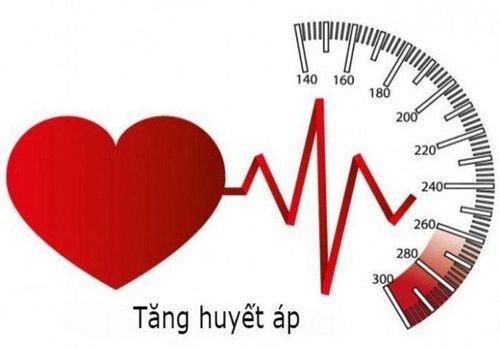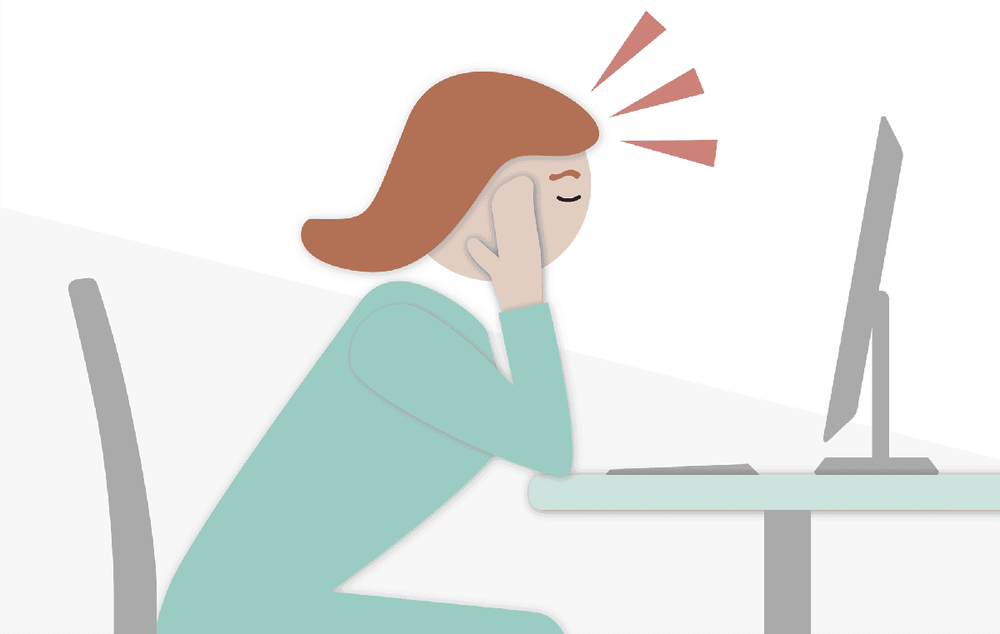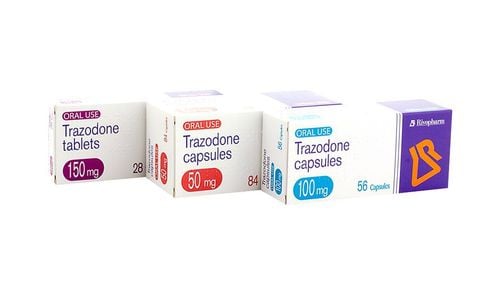This is an automatically translated article.
Work stress, high blood pressure and poor sleep can be the cause of premature death. A stressful work environment plus a lack of sleep can lead to a three times higher risk of cardiovascular death in people with high blood pressure.
1. Stress, chronic insomnia and high blood pressure are the deadly trio
In a study conducted on nearly 2,000 hypertensive workers followed for nearly 18 years, those who reported both stressful work and poor sleep were 3 times more likely to die from heart disease compared to those who slept well and were not stressed at work. “Up to 50% of adults have high blood pressure,” says Dr. Gregg Fonarow, professor of cardiology at the University of California, Los Angeles. It is a major risk factor for heart attack, heart failure, stroke, kidney disease, and premature cardiovascular death.”
Several studies have found a link between work stress and the risk of later cardiovascular events. However, these associations did not prove a cause-and-effect relationship.
In the new study, researchers report that among people with high blood pressure, those who do stressful jobs alone are 2 times more likely to die from cardiovascular disease and those who report losing so does sleep.
According to study leader Dr. Karl-Heinz Ladwig: "Sleep should be a time to relax and restore energy levels. If you experience stress at work, good sleep can help you recover. Unfortunately, poor sleep and work stress often go hand-in-hand, and when combined with high blood pressure, the effect is even more damaging.”
According to the study authors, a stressful job is a job where employees have a lot of work requirements but have little control over their work
Ladwig says: “If you have high demands but also have a high degree of control, in other words, you can make decisions, which can even have a positive impact on your health. But getting caught up in a stressful situation that you don't have the power to change can be harmful."
Poor sleep is defined as difficulty falling asleep and staying asleep. Maintaining sleep is the most common problem among people with stressful jobs. These problems combine over time to drain your energy and "could lead to premature death".
Researchers suggest that employers can help by implementing programs that teach employees how to relax. Employers should manage stress and improve workers' sleep at work, especially for employees with chronic conditions such as high blood pressure.
It is well known that people with high blood pressure can significantly reduce their risk of heart attack and stroke by achieving and maintaining healthy blood pressure levels. Whether workplace wellness programs designed to reduce stress and improve sleep are effective remains to be seen.

Căng thẳng công việc, huyết áp cao và ngủ kém có thể là nguyên nhân dẫn đến tử vong sớm
2. High blood pressure is a major risk factor for many health problems
According to the American Heart Association (AHA), a normal blood pressure reading for adults has a mercury level of less than 120/80mmHg, while people with hypertension have a systolic blood pressure of 130 mm Hg or higher. and/or a diastolic blood pressure of 80 mm Hg or higher. However, now the criteria for the diagnosis of high blood pressure have been adjusted.
Many factors can increase a person's risk of heart disease, some of which cannot be controlled, such as age, gender, and genetics. However, other factors such as smoking habits, high blood cholesterol, physical inactivity, and being overweight are all modifiable.
High blood pressure is a high risk factor for heart disease because when blood pressure is high, the heart has to work harder to pump blood around the body. The increased work of the heart thickens the heart muscle, and it can also harden or damage the artery walls. Eventually the amount of oxygen reaching the body's organs decreases and the heart is damaged over time due to the increased workload.
3. How stress is related to sleep, heart health
Stress is also a factor that can contribute to heart disease. In this study, researchers defined a stressful job as one that places high demands on employees but doesn't give them much control over what they have to do and achieve each day.
The researchers also note that most people with sleep problems have trouble falling asleep, while others have trouble falling asleep.
Professor Ladwig says: “Maintaining sleep is the most common problem in people with work stress. They wake up at 4 a.m. to go to the bathroom and go back to bed to think about how to solve work problems.”
High blood pressure is already a major risk factor for heart disease, but if it's combined with both chronic insomnia and long-term work-related stress, there are potential problems.
Doctors should discuss sleep and work stress with people who have high blood pressure and are at high risk for their heart health problems.

Tăng huyết áp là một yếu tố nguy cơ chính đối với nhiều vấn đề sức khỏe
4. What you need to know about sleep deprivation
Sometimes disrupted sleep can be a nuisance, while chronic insomnia can affect work performance, ability to function daily, quality of life and impair health your.
Lack of sleep can affect various aspects of health, including:
Immune system : Lack of sleep can make a person more susceptible to infections, which may take longer to treat infectious disease. Weight: Sleep can affect hormones that control hunger and satiety, which can also trigger the release of insulin, which in turn affects weight. Changing sleep patterns can cause increased fat storage, leading to changes in body weight and a higher risk of type 2 diabetes. Cardiovascular system: Sleep helps blood vessels heal and influences processes that maintain blood pressure, sugar levels, and control inflammation. Chronic lack of sleep can increase the risk of cardiovascular disease. Hormone levels: Not getting enough sleep can affect hormone production, including growth hormone and testosterone production. It also causes the body to release additional stress hormones, such as norepinephrine and cortisol. Brain: Sleep deprivation affects the prefrontal cortex, which processes reasoning, and the amygdala that processes emotions. Lack of sleep can also make it difficult for a person to form new memories, which can affect learning. Fertility: Not getting enough sleep can affect the production of fertility-enhancing hormones. Lack of sleep can limit the following abilities:
Attention; Rapid response; Give decision. A sleep-deprived person has a higher risk of drowsy driving, leading to an accident. In a survey, 1 in 25 adults in the US said they had fallen asleep within the previous month. People should not drive or use machines if they feel drowsy.
In the long term, chronic insomnia can increase the risk of diseases:
High blood pressure; Diabetes or insulin resistance; Sleep apnea ; Fat ; Heart attack; Stroke; Depression and anxiety; Psychosis . In conclusion, stress at work, high blood pressure and poor sleep may be the causes of premature death in humans. Therefore, you need to have a reasonable work plan, manage stress, improve sleep and control high blood pressure (if any) effectively.

Căng thẳng kéo dài cũng là một yếu tố có thể góp phần gây ra bệnh tim
Together with cardiovascular health care for the community, Vinmec has deployed many packages of examination, diagnosis and treatment of cardiovascular diseases such as basic Cardiovascular examination package, coronary artery disease examination and screening package, and hypertension. , heart failure... for different risk groups. Besides, Vinmec is fully equipped with modern equipment such as high standard testing system, electrocardiogram machine, echocardiogram, stress electrocardiogram, Aquillion 640 slice CT scanner, technical angiography machine modern digital number (DSA)... makes examination and treatment easier. Especially, the medical team with many years of experience in diagnosing and treating cardiovascular diseases in general and coronary artery disease in particular is the decisive factor in bringing satisfaction to all customers. :
Please dial HOTLINE for more information or register for an appointment HERE. Download MyVinmec app to make appointments faster and to manage your bookings easily.













